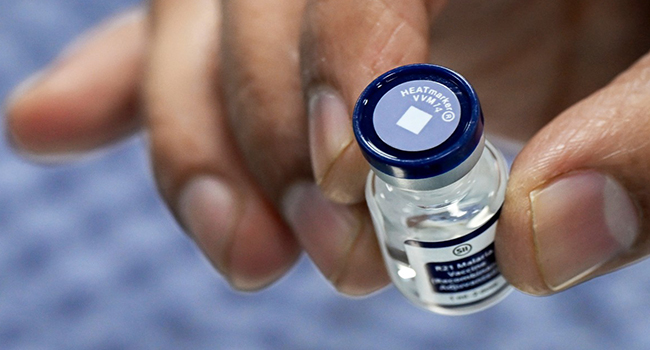THE Federal Government has said the malaria vaccine will now be part of the national routine immunisation schedule.
The development was after it vowed to eliminate Malaria following a loss of $1.1bn annually to the health crisis.
Prof. Muhammad Ali Pate, the Coordinating Minister for Health & Social Welfare at the inaugural meeting of the Advisory on Malaria Elimination in Nigeria (AMEN) held in Abuja last week, described malaria as not just a health crisis, but also an economic and developmental emergency that must be eliminated.
In his remarks, the Coordinating Minister stated that the federal government is resolute in its commitment to eliminate malaria.
He said:” Malaria continues to exert an unacceptable toll on Nigeria With 27% of global malaria cases and 31% of global malaria deaths, our country bears the heaviest burden of this disease. In 2022, over 180,000 Nigerian children under the age of five lost their lives to malaria- a tragedy we have the tools to prevent”.
On its economic consequences, the Coordinating Minister emphatically declared: “This is not just a health crisis; it is an economic and developmental emergency. Malaria reduces productivity, increases out-of-pocket health expenditures and, compounds the challenges of poverty. The annual loss to Nigeria’s GDP from malaria exceeds $1.1billion, a stark reminder of the economic imperative of elimination.”
Malaria elimination, Prof. Pate stated, is a critical component of the Nigeria Health Sector Renewal Investment Initiative (NHSRII) framework for transforming the health sector, in alignment with the Renewed Hope Agenda of the present administration.
In an update, the National Primary Health Care Development Agency (NPHCDA) disclosed on its X handle that malaria vaccines would now be part of the national routine immunisation.
According to agency, the vaccine will offer protection to millions of children and move the country closer to a malaria-free future.
It said the first phase of the malaria vaccine rollout will commence in Kebbi and Bayelsa states.
Malaria is one of the deadliest diseases in Nigeria and Africa, taking the lives of hundreds of thousands of children under the age of 5 each year.
Nigeria accounts for approximately 27% of the global malaria burden and 31% of malaria deaths worldwide.
Earlier in October, the federal government received one million doses of the R21/Matrix-M malaria vaccine donated by Gavi, the Vaccine Alliance. It was delivered with the support of UNICEF and the World Health Organization (WHO).







